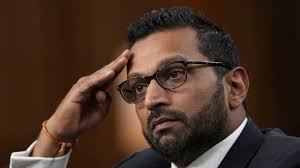
Breaking News
 Trump Administration Furthering Control Grid
Trump Administration Furthering Control Grid
 Living in a World of Ongoing Shortages
Living in a World of Ongoing Shortages
 The Gaza Crisis and the Repeal of Christianity's Personhood Revolution
The Gaza Crisis and the Repeal of Christianity's Personhood Revolution
 RED ALERT: Doctors Sound the Alarm After Fibrous Clots Discovered in Young Children Born...
RED ALERT: Doctors Sound the Alarm After Fibrous Clots Discovered in Young Children Born...
Top Tech News
 Hydrogen Gas Blend Will Reduce Power Plant's Emissions by 75% - as it Helps Power 6 States
Hydrogen Gas Blend Will Reduce Power Plant's Emissions by 75% - as it Helps Power 6 States
 The Rise & Fall of Dome Houses: Buckminster Fuller's Geodesic Domes & Dymaxion
The Rise & Fall of Dome Houses: Buckminster Fuller's Geodesic Domes & Dymaxion
 New AI data centers will use the same electricity as 2 million homes
New AI data centers will use the same electricity as 2 million homes
 Is All of This Self-Monitoring Making Us Paranoid?
Is All of This Self-Monitoring Making Us Paranoid?
 Cavorite X7 makes history with first fan-in-wing transition flight
Cavorite X7 makes history with first fan-in-wing transition flight
 Laser-powered fusion experiment more than doubles its power output
Laser-powered fusion experiment more than doubles its power output
 Watch: Jetson's One Aircraft Just Competed in the First eVTOL Race
Watch: Jetson's One Aircraft Just Competed in the First eVTOL Race
 Cab-less truck glider leaps autonomously between road and rail
Cab-less truck glider leaps autonomously between road and rail
 Can Tesla DOJO Chips Pass Nvidia GPUs?
Can Tesla DOJO Chips Pass Nvidia GPUs?
 Iron-fortified lumber could be a greener alternative to steel beams
Iron-fortified lumber could be a greener alternative to steel beams
Kash Patel Announces New Discovery That Could Finally Take Fauci Down

Kash Patel didn't waste any time. He opened with a stat that most Americans have probably never heard—and it was a big one.
During Trump's first term, Patel was in charge of counterterrorism for the White House and National Security Council. In that role, he helped lead one of the administration's most overlooked achievements.
"Hostages, we can talk about that forever too," Patel said. "Counterterrorism was a big portfolio, I ran it for the White House and National Security Council in the first Trump administration."
Then he dropped the number: "We brought home—people don't know this—President Trump in his first term, brought home and rescued over 50 hostages and detainees from around the world." He added, "That's more than every president before him combined."
Rogan looked stunned. "Wow," he said.
Patel explained that hardly anyone knows these rescues even happened. The missions weren't covered in the headlines, and the stories of families being reunited after dangerous operations in places like Africa and the Middle East were mostly ignored.
"Did you hear about the successes of reuniting families with lost loved ones from Africa or the Middle East?" he asked.
He then described how Trump personally signed off on high-risk missions—sending elite forces into hostile territory to bring people home. "These operations, that the president was courageous enough to green light to go into places like Afghanistan and do these hostage rescue ops, and use Seal Team Six and Delta," he said.
From there, the conversation shifted to a very different kind of crisis—one playing out right here in the U.S. and claiming tens of thousands of lives: fentanyl.
Patel didn't mince words about who's behind it. "So where's the root of the problem? The CCP," he said, pointing directly at the Chinese Communist Party.
This part of the discussion took a darker turn.
Patel explained that while China isn't producing the fentanyl itself, it's playing a central role by supplying the raw chemical ingredients used to manufacture it. "The fentanyl precursors, the stuff you need to make fentanyl comes from mainland China. That's it."
He said there are hundreds of Chinese companies involved—mass-producing and exporting these precursors around the world. Most of them land in Mexico, where cartels convert the chemicals into fentanyl and smuggle it across the border.
"They're like 'we don't make fentanyl.' They're right, they don't," Patel said. "They just give you all the ingredients for it and ship it to Mexico."



